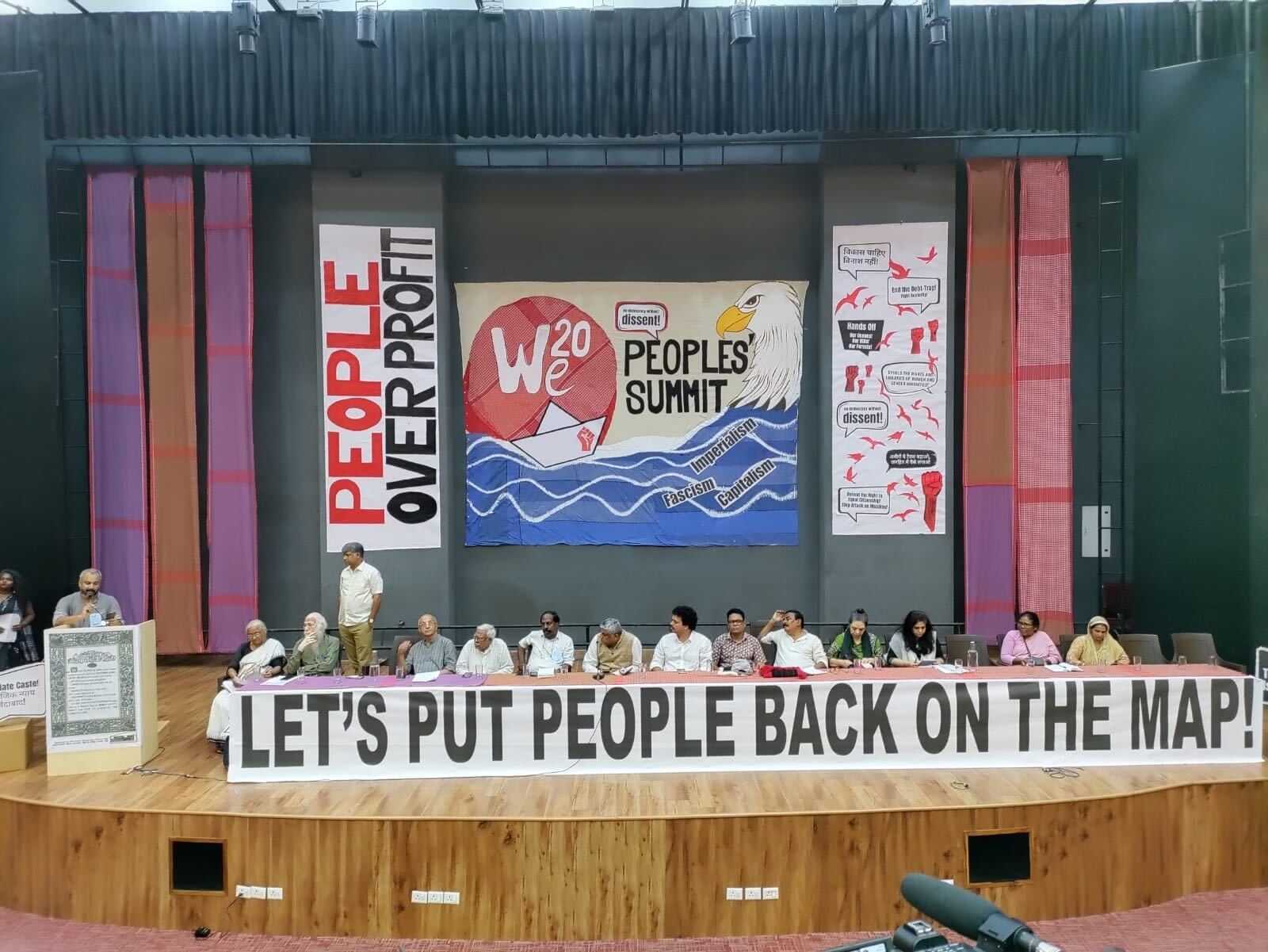India assumed the G20 presidency end of 2022 and the Leaders’ Summit was held in early September 2023. During this time the Government used it to seek political and electoral mileage, conducting over 200 meetings in 60 towns and cities, making a spectacle out of it.
The picture that was presented and the show put on reeks of vulgar display at a time when India’s performance on every social barometer is abysmally poor. While India’s position on several rankings related to electoral democracy, freedom of speech, press freedom index were falling, and attacks on religious minorities were on the rise, India projected herself as the ‘Mother of Democracy’ and ‘Vishwaguru’ in its publicity blitz towards the build-up to the Summit, using public money. Rs. 51 crore was incurred by the central government alone for these advertisements, while what was spent by the state governments and municipal corporations are yet to be ascertained.
The economy is in shambles. Cronyism, corruption, fraud and vulgar accumulation of wealth are legally sanctioned, valorised and made it into a virtue in itself. This has led us to a situation where unemployment rate is the highest in 45 years. GDP growth had been on a downward slide before 2019. With COVID-19, and with the nationwide lockdown, that slide turned into a fall, sending India to negative growth for the first time in 40 years. Retail inflation rates are still high, impacting the food and essential goods of common people. We can look at rising household debt, wealth inequality, rampant accumulation of wealth and power, jobless growth, and the crisis of livelihoods, and all these will tell us the economic state in which we are.
Demonetisation and the goods and services tax regime have broken the backbone of the informal sector, which employs nearly 90% of the workforce, and small traders, something which they never recovered from. The GST regime has also crippled the state governments in terms of their agility to find resources of their own to meet their needs, posing a serious threat to fiscal federalism.
This is in addition to the crackdown on civil society, criminalizing dissent and engineering communal polarisation in a massive and planned manner. Or the compromising of all key institutions of this country which could have and which played a role in the past, to speak truth to the powers and hold them accountable. All of these are essential to this regime to promote and sustain the dream of ‘Amrit Kaal.’
While a Bofors rocked a government decades back, a Rafale jet deal, or Electoral Bonds or PM Cares or even a Hindenburg report is not even looked at with the seriousness it deserves and pursued to their logical end by the media or judiciary and the voices of the opposition parties are either expunged or they are disqualified. The secrecy which is made to accept and silence bought over these matters with the ED and IT raids has further exacerbated the gap of accountability.
It is in this context India was hosting the G20 Summit and the related meetings.
Fundamentally, legitimacy of G20 has been challenged by progressive forces for the past many years. Firstly, G20 is reflective of a self-appointed elite body, which has no legitimacy, functioning in a top-down manner because they make up 80% of global economic output. Secondly, the G20 is a major obstacle in the process of democratization of economic governance. The fact is that the presidency has come to the southern (Global South) leadership by no measure means that it would be progressive because a lot of governments in the Global South have embraced neoliberalism.
The namesake spaces for civil society to engage like C20 have been co-opted by appointing groups aligned with government ideology.
We20: Peoples’ Summit was one of the people’s responses to India’s G20 presidency. The We20: Peoples’ Summit was intended to serve as a counterpoint, addressing the shortcomings and concerns that many argue are inadequately tackled by the G20’s policies and decisions. Police stopped the We20 on the 3rd day. Before the police disrupted the We20, 6 out of the 9 workshops took place. The remaining 3 workshops were held online.
Read the full report on the event here: We20 Report

